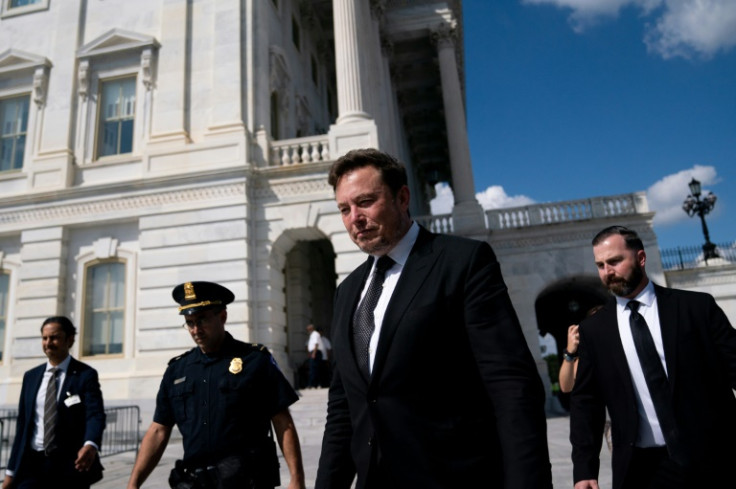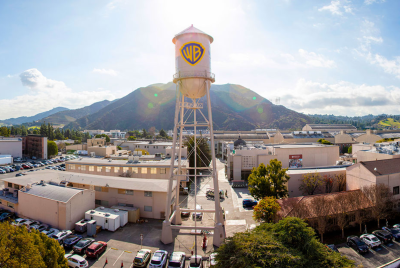Widening Wealth Gap: World's First Trillionaire Predicted in a Decade as the Poor Gets Poorer
The world's billionaires have collectively become £2.6 trillion richer since 2020, growing their wealth at a rate three times faster than inflation.

The world's five wealthiest individuals have reportedly doubled their fortunes, amassing unprecedented wealth, even as the plight of the poorest segments of society worsens.
The collective fortunes of the five richest men in the world — Elon Musk, Jeff Bezos, Bernard Arnault, Larry Ellison and Mark Zuckerberg have surged to an astounding £681.5 billion since 2020, more than doubling their wealth.
In stark contrast, the world's poorest 60 per cent, comprising nearly 5 billion people, have experienced financial losses during the same period.
These revelations coincide with the gathering of the world's richest at the annual World Economic Forum meeting in Davos, Switzerland, where political leaders, corporate executives and the super-rich convene.
The report underscores the widening chasm between the rich and the poor, predicting a further increase in this gap and anticipating the emergence of the world's first trillionaire within the next decade.
Concurrently, it issues a stark warning that, if prevailing trends persist, global poverty will persist for another 229 years.
Oxfam's report, titled 'Inequality Inc.', sheds light on the exacerbated inequality that has emerged in the aftermath of the COVID-19 pandemic.
It revealed that the world's billionaires have collectively become £2.6 trillion richer since 2020, growing their wealth at a rate three times faster than inflation.
Notably, the report highlights a concerning trend where seven out of ten of the world's largest corporations have a billionaire as either the CEO or principal shareholder.
This revelation comes amidst a backdrop of stagnant living standards for millions of workers across the globe.
As the rich amass unprecedented wealth, millions face the harsh realities of financial losses and enduring poverty.
The disparities underscore the urgency for robust policy interventions and global cooperation to address the root causes of inequality, ensuring a more equitable distribution of resources and opportunities.
The widening wealth gap has been a longstanding concern, but the recent acceleration of the richest individuals' financial growth raises new questions about the sustainability and ethics of such disparities.
"People worldwide are working harder and longer hours, often for poverty wages in precarious and unsafe jobs. Across 52 countries, average real wages of nearly 800 million workers have fallen. These workers have lost a combined $1.5tn over the last two years, equivalent to 25 days of lost wages for each worker," the report says.
In the United Kingdom, the situation is no different.
While the nation grapples with economic uncertainties and the aftermath of the pandemic, the wealth concentration at the top continues to soar.
Wealth inequality has become a contentious issue, with experts calling for policies that address the root causes and promote a fairer distribution of resources.
Political leaders and policymakers are facing mounting pressure to implement measures that mitigate the growing wealth gap.
Critics argue that tax reforms, increased social spending and a reevaluation of corporate practices are crucial steps towards fostering a more equitable society.
The notion that "the rich get richer while the poor get poorer" is becoming an increasingly poignant reality, prompting a reexamination of economic systems and policies to ensure they serve the interests of all citizens.
Julia Davies, an investor and a founding member of Patriotic Millionaires UK, a nonpartisan organisation comprised of British millionaires advocating for a wealth tax, emphasised that taxes on wealth are comparatively nominal when contrasted with taxes on income earned through labour.
"Just imagine what £22bn a year invested in public services and infrastructure could pay for; improving the lives of every one of us who live in the UK and providing our elderly, young and vulnerable with the care and support they need and deserve," she said.
The impact of this wealth divide goes beyond economic considerations, influencing access to education, healthcare and opportunities for social mobility.
Charities and advocacy groups are amplifying their calls for concerted efforts to address these systemic issues, emphasising the need for both national and international cooperation to create meaningful change.
© Copyright IBTimes 2025. All rights reserved.






















